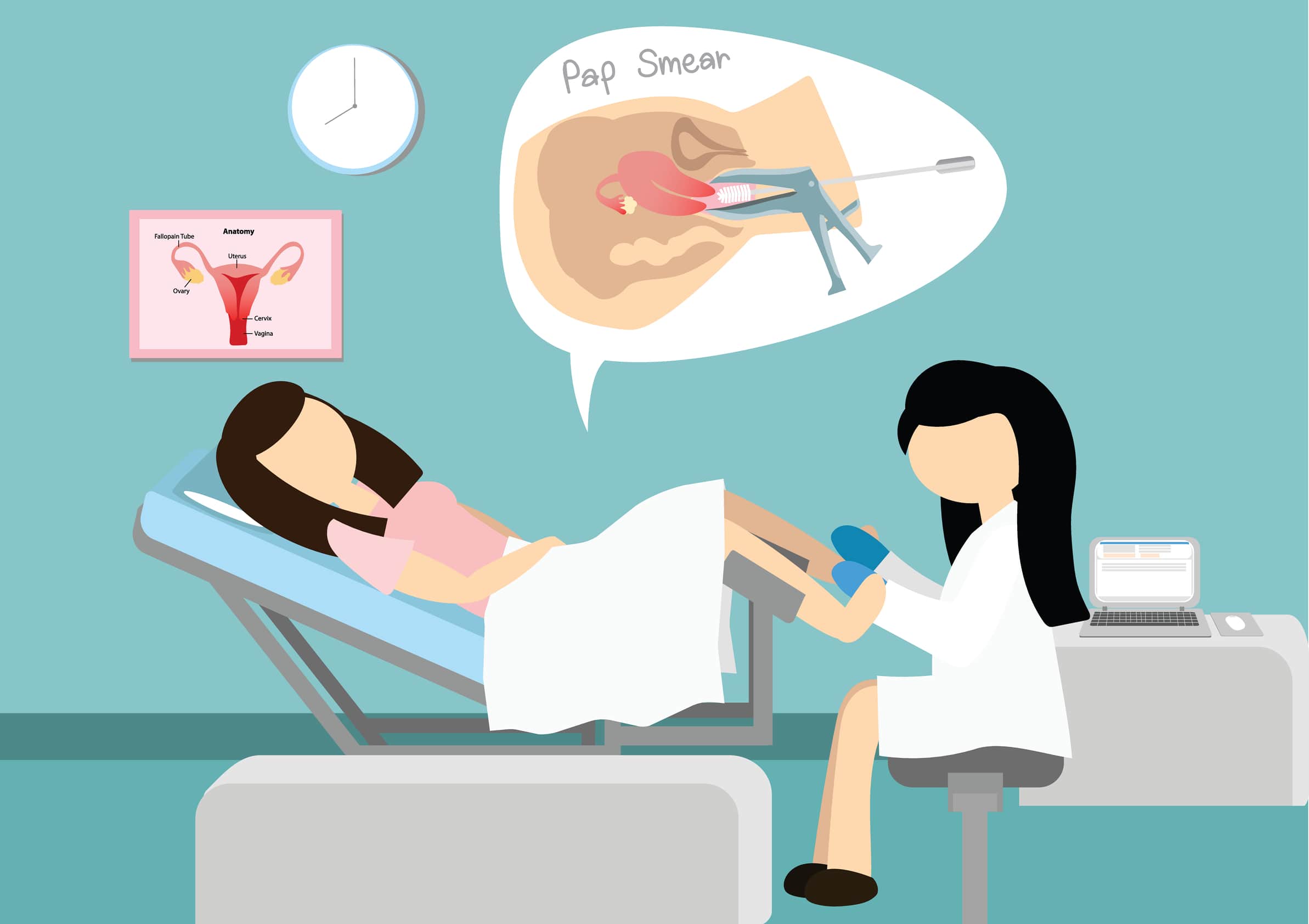Pap Test at DRHC Dubai
What is a Pap Test?
A Pap test, also known as a Pap smear, is a procedure performed in order to identify the abnormal cells which are covering the uterine cervix. We are regulating these cellular alterations since they may result in cancer.
In the majority of cases, these changes are caused by the long-term presence of the virus in the cells covering the cervix. This virus is called Human Papilloma Virus or HPV.
Normally, this virus can easily go away within 1-2 years. Our immune system can fight it. But in around of 10% of the population, this virus can stay in the body for many years.
The HP Viruses live in the cells covering the cervix and are able to make some changes in the cells. As a result of this long presence, some cells become abnormal.
These changes can also range from minor to severe and even to cancer.
Unlike ovaries, the cervix is advantageous in view of early detection because we can visually inspect the cervix and we can identify even small changes in the cells when these changes are minor.
But unfortunately, ovarian cancer is very difficult to detect at its early stage. And when it is already detected, it is usually at an advanced stage. But we know that cancer can be easily treated forever at its early stages.
So, we encourage women to take advantage of this scientific achievement and to visit doctors for cervical cancer screening on a regular basis.
How is the screening performed?
Screening includes visual inspection of the cervix and taking a smear from the surface of the cervix. It is absolutely pain-free procedure. The sample is sent to the laboratory, where a pathologist examines the cell under a microscope. With this sampling, we can detect not only changes in the cells, but also, we can detect the presence of the virus and what type of virus it that virus. Is it oncogenes or not?
How the cancer is developing?
There several stages in the process of how these cells change.
From minor to severe changes and finally to cancer. Even just one cancerous cell is enough to start the process of tumor growing. And unfortunately, the early stage of cervical cancer has no symptoms. So, we can detect it only with visual inspection and screening with Pap test.
When and how often Should You Get Pap Tests?
Routinely it should be performed from the age 21 till 65. After 65 only for special group of patients.
- From 21 till 26 only Paptest and every 3 years.
- From 26 till 65 there are 3 options.
- 1st option - only Paptest every 3 years,
- 2nd option - Paptest + HPV test every 5 years,
- 3rd option - only HPV test every 5 years.
Regardless of your age, your doctor may advise having more frequent Pap smears if you have certain risk factors. These risk elements consist of:
- Getting a cervical cancer diagnosis or having a Pap test reveal precancerous cells
- Diethylstilbestrol (DES) exposure before birth
- A history of HIV
- Immune system compromise brought on by chemotherapy, organ transplantation, or long-term corticosteroid use
- A background of smoking
Why from 21 till 26-year-old no need HPV testing?
Because of two reasons. Firstly, the HPV is very common at this age; secondly, within 1-2 years, it goes away on its own without causing any cell damage. And checking these young people for the presence of the virus will create only tension and unnecessary worries.
How Long It Takes for Pap Test Results to Come Back from Lab After Sample Submission?
The time taken for pap test results to come back from the lab after sample submission can vary depending on the complexity of the test. The simpler tests usually take two to three days, while more complex tests may take up to two weeks.
Call your doctor's office if, 3 weeks following the test, you haven't received the results of your Pap and HPV tests.
What to do If Your Pap Smear Results Demonstrate Abnormalities?
As we know that the changes range from minor to severe, then based on the severity of the changes doctor will recommend either close observation (for example, to repeat Pap test after 6-12 months) or to perform some procedure aiming to remove abnormal cells - diathermy, cryotherapy, or excision of the lower part of the cervix. Or the doctor will advise performing a colposcopy to examine the cervix more precisely.
A common scenario is when a woman is informed about minor abnormal changes and immediately gets upset and anxious, asking doctors: “Do I have cancer? Will I have cancer soon?”
No, no, no! It is just slightly abnormal cells that need close monitoring or removal of the cells, but not the cervix itself. That’s it!
Of course, there are some rare cases when the cancer can be detected, and in such cases, the treatment will be more aggressive.
What are the Benefits of Regular Pap Test Screenings?
As stated above, the Pap test is a screening test that can help find cervical cell changes. It can also help detect cervical cancer early, when it's more treatable.
This is why the American College of Obstetricians and Gynecologists (ACOG) recommends women get screened for cervical cancer every three years with a Pap test or every five years with the newer HPV DNA testing.
Hence, regular pap test screenings are important because they can help identify problems early on, help to treat them effectively, and prevent cervical cancer from developing, ensuring you maintain a healthy lifestyle.
Click here to know about Gynecology Surgery Packages
.png?width=281&height=59&name=bookanappointment%20(1).png)
Dubai Obstetrics and Gynecology clinic at DRHC now provides top male and female Gynecologists in Dubai to enhance the service on Cosmetic Gynecology, Surgical Gynecology, Contraception, Menopause, Labiaplasty, and so on. To book an appointment, please call +97142798200 today!





.png?width=281&height=59&name=bookanappointment%20(1).png)




